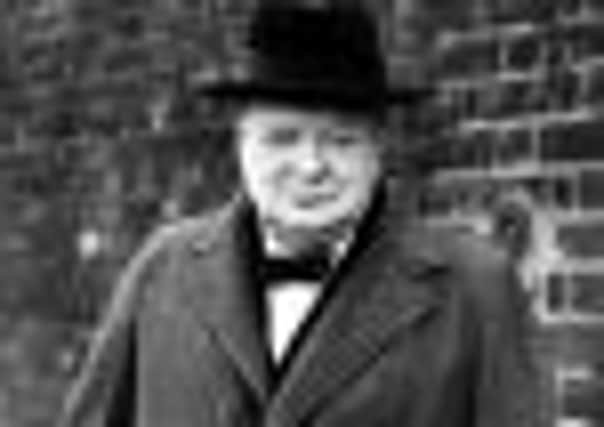Dismay at memorial ‘snub’ to decorated airman


But it seems the achievements of Air Commodore Ronald Berry CBE DSO DFC and Bar are not enough to earn him a memorial in his home city of Hull.
A council report has described such a tribute as “disproportionate”, and with separate plans for a rededication of another memorial set to be abandoned in the face of opposition from veterans’ groups, questions are now being asked about the way Hull is honouring its war heroes.
Advertisement
Hide AdAdvertisement
Hide AdThe report on the proposed Ronald Berry memorial – which followed an approach to the Lord Mayor by his niece Caroline Moore – says the only military personnel commemorated as individuals are Hull’s four Victoria Cross winners – John Sheppard, William Traynor, John Cunningham and John “Jack” Harrison.
Noting that Mr Berry was one of more than 1,500 people to have been awarded a Bar to their DFC – effectively a second DFC – the report says “this is not the same level of recognition as represented by a VC”.
It also questions whether Mr Berry’s success as a fighter pilot, when judged by the number of enemy he accounted for, is an appropriate cause for celebration today.
It said: “His number of ‘kills’ in the Battle of Britain was high but was not the highest, and it is debatable whether 80 years after the Battle of Britain, in utterly different times, we should seek to honour an airman for this reason alone.”
Advertisement
Hide AdAdvertisement
Hide AdThe report concludes: “Commemoration of Berry as an individual might be seen as disproportionate when compared with the memorials for the city’s VC winners. Commemoration of Berry as an individual risks creating an unsustainable precedent for the establishment of memorials as more names of wartime service personnel are highlighted as they are researched, or as families bring them to the council’s attention.
“Wartime aircrew are already commemorated together at the cenotaph by a memorial donated by the Royal Air Forces’ Association.”
The report has, however, dismayed those backing the proposal.
Author Don Chester, who wrote a book about the pilot called Ronald Berry: Hull’s Spitfire ‘Ace’, said: “I am disappointed that they take that view. As for the precedent of other names coming forward that would have to be considered –well why not? These men put their lives on the line for the country and performed heroic deeds in doing so and they should be remembered.
Advertisement
Hide AdAdvertisement
Hide Ad“Who else can remember them apart from their families if the city authority doesn’t take some sort of step as many others have done?
“The council in Hornchurch in Essex named a street after Ronald Berry because he flew out of RAF Hornchurch during the Battle of Britain and there are other places with a similar point of view – when large development takes place they frequently allocate names of streets or buildings to people of this description, so I think that’s a very narrow, disinterested point of view.”
He added: “In the Guildhall I think they did carry a plaque as a memorial to several local men who fought in the Spanish Civil War – it was probably appropriate for the council at the time because they were Republican, so when it suits them they can do it.”
The council said it did not want to comment until after the report is considered by councillors on Friday.
Advertisement
Hide AdAdvertisement
Hide AdMr Berry, who was born in Westcott Street, was credited with 22 kills, a further 11 shared, 11 probable, and 24 enemy aircraft damaged or destroyed. He was made CBE in 1965 and died in 2000, aged 83. Whatever the outcome, there was no doubting Churchill’s regard for British airmen.
In a speech to the Commons on August 20, 1940, he said: “The gratitude of every home in our Island, in our Empire, and indeed throughout the world, except in the abodes of the guilty, goes out to the British airmen who, undaunted by odds, unwearied in their constant challenge and mortal danger, are turning the tide of the World War by their prowess and by their devotion.
“Never in the field of human conflict was so much owed by so many to so few.”